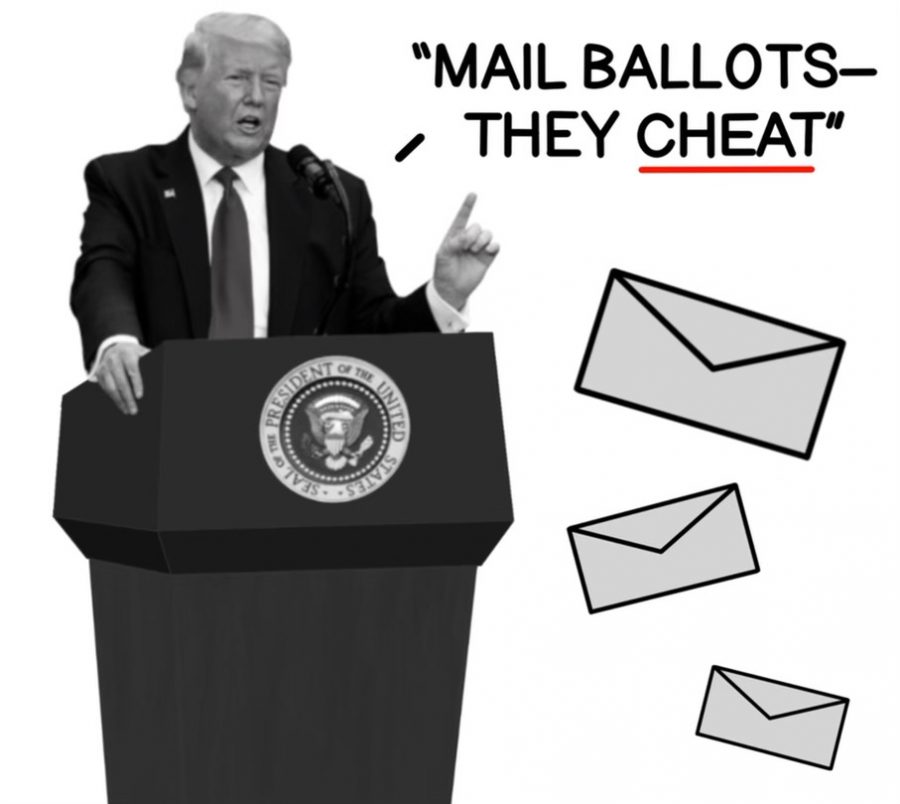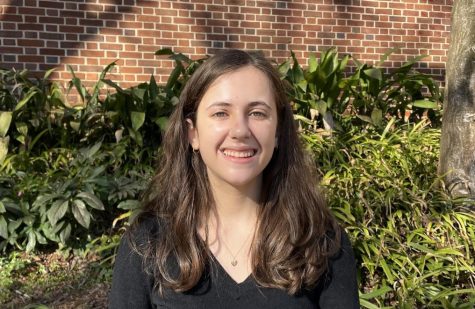Exaggerations of voter fraud hurts the American people the most
Following the presidential debate the country is alight with President Trump’s accusations of voter fraud; most of which have been unfounded and inaccurate
October 30, 2020
States like Georgia and Texas, are battlegrounds for the fight against voter suppression, and with the drastic switch from in-person to mail-in ballots, accusations of voter fraud have run rampant. While there has been much discourse about the prevalence of voter fraud, most claims are greatly exaggerated and only serve to harm the American public.
Recently, the New York Times reported that Georgia Secretary of State Brad Raffensperger announced his office would be beginning investigations of 1,100 double voting instances following the June primary and the subsequent August runoff. With Georgia’s history of voter suppression, organizations such as Common Cause Georgia are concerned that voters who were just trying to get their vote counted are being unfairly prosecuted. Despite this, Raffensperger has noted (in the same article) that he will not take the “intentionality” of the cast vote into account as intentionality is not required under state law.
Many organizations and newspapers have found concerns surrounding voter fraud, such as double voting, are largely unfounded, and the confusion created by President Donald Trump and his associates only serves to further threaten the integrity of an already confusing and stressful election.
The Brennan Center for Justice found that there is no evidence that voting by mail will result in a significant amount of fraud and the chance of fraud for in-person voting is extremely small. In an evaluation of a study conducted by the Heritage Foundation, the Brookings Institute found that over 36 years, out of nearly two billion votes cast, only 1,285 cases were fraudulent. That amounts to a .0000007 percent rate of potential voter fraud.
BBC reports that an Arizona State University study found between 2000 and 2012, out of hundreds of millions of ballots cast, there were only 491 cases of potential voter fraud. The Washington Post found only four documented cases of voter fraud in the 2016 election. From all this data, it can be concluded that throughout the voting history of the United States, there hasn’t been prevalent voting fraud. Why make these claims now?
Despite information reported by the Associated Press disproving Trump’s claims concerning fraud in Pennsylvania, Trump continues to push the narrative that the 2020 election is at risk of falling victim to widespread voter fraud by emphasizing small mishaps as glaring manifestations of alleged rampant and unrestrained voting fraud. The AP article reports that Trump chose to highlight a scenario in Pennsylvania in which an election worker accidentally discarded nine ballots, which election officials ruled a mistake. Trump’s decision to seize on this minuscule mistake as a talking point for his “voter fraud” agenda only serves to confuse, mislead, and deceive the American public. This is a disservice to the American people by disincentivizing them from voting and by making the voting process more complicated than it is.
The truth, and the numbers, show that voter fraud is not significant in the United States and will likely continue not to be a problem in the United States. Trump’s decision to capitalize on the minor mistakes while disregarding the broader spectrum of data, in order to further his agenda, only emphasizes that he is not concerned about the American people. President Trump has shown that he is more concerned with promoting his agenda of voter fraud that has been repeatedly disproved by a variety of news sources. He has demonstrated how he is more focused on promoting his own agenda than that of the American people.







